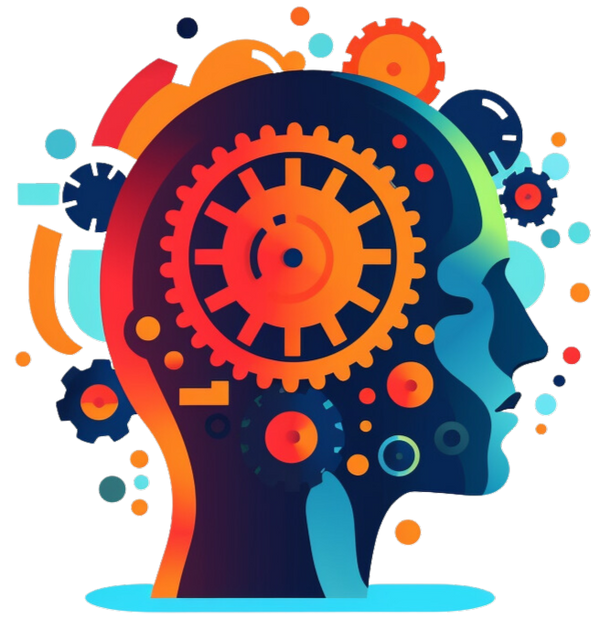
Hardly any stability: accompanying problems with ADHD
Share
People with ADHD are about four times more likely to have addiction problems than neurotypical people. They are up to 10 times more likely to experience depression. The list goes on, unfortunately—which is another reason why a correct diagnosis of ADHD is so important.
Difficulty with focused attention, high impulsivity, racing thoughts, and/or an enormous urge to move: these are the well-known symptoms of people with ADHD. "Don't we all have that?" is the understandable objection of neurotypical people. "Don't we all lose our keys, lose our tempers, or have trouble concentrating on the computer?"
Of course, is the answer. That's all perfectly normal. But people with ADHD aren't "just" forgetful, impatient, unfocused, nervous/hyperactive, or overly emotional: they exhibit all of these things to a degree that can significantly impact their everyday lives . Yet people with ADHD also develop compensatory strategies. They try to adapt as much as possible to avoid being perceived as "abnormal." Not least because of this enormous pressure, many of them ultimately develop depression. Or they use drugs such as alcohol or stimulants. The most common accompanying problems of untreated ADHD at a glance: 
ADHD and addiction disorders
Adults with ADHD have a significantly increased risk of substance abuse - estimates suggest this risk is four times higher than for people without ADHD. A review of the literature reveals high rates of alcohol abuse (17 to 45 percent) and drug abuse (9 to 30 percent) among adults with ADHD. Although adolescents with ADHD initially have similar rates of substance abuse, they tend to start using alcohol and other drugs earlier, use more frequently, and have more difficulty giving up (Note: Alcohol is deliberately categorized as a drug because, along with tobacco, it is the deadliest drug. In 2022, 1,990 people died in Germany from illegal drugs , compared to approximately 74,000 people from alcohol and tobacco ).
The reasons for this are varied. A person with ADHD often displays impulsive behavior and is therefore easily influenced. In their constant pursuit of new experiences ( "sensation seeking" ), people with ADHD tend to engage in risky behavior, including when using drugs. Because they usually don't plan far ahead, they are particularly susceptible to the short-term euphoric effects of substances. Furthermore , illegal drugs like cocaine work exactly the same way as Ritalin , only more intensely and for a much shorter time. The same applies to amphetamines – they are even used directly as ADHD medications (simply in a slow-release form, "Elvanse"). Thus, people with ADHD are " self-medicating " when they turn to stimulants and discover their benefits. They notice that they become more focused and calm.
Environmental factors are also important. Symptoms such as reduced attention and uncontrolled behavior can lead to a young person being perceived as disinterested, forgetful, and chaotic. Despite normal intelligence, poor school grades may occur, leading to social exclusion. Increased impulsivity and attention deficit reduce the chances of success with psychoeducational interventions or long-term therapeutic approaches. Parental support is often lacking in this difficult situation, especially if the parents themselves have mental health problems. Parents of children with ADHD are known to exhibit higher rates of alcohol and stimulant addiction, anxiety disorders, mood swings, and conduct disorders than the general population.

ADHD and mental illness
People with ADHD suffer from mental illnesses far more frequently than the general population, particularly anxiety disorders and depression. Over 80 percent of adults with ADHD have at least one comorbid mental health condition, and 60 percent suffer from multiple conditions. ADHD therefore increases the risk of other mental health disorders. Furthermore, the risk of depression increases with age—depression is diagnosed up to ten times more often in people with ADHD.
But what could be the reason for the high prevalence of comorbidities in ADHD? Genetic factors are thought to play a role, as links have been found between ADHD, depression, bipolar disorder, migraine, and autism. However, the exact relationships are not yet fully understood.
However, it is well known that people with ADHD often experience failure, defeat, and rejection, even from childhood . Children with ADHD strive to pay attention and achieve success in school. However, they also experience daily distressing restlessness, the urge to be active, the inability to sit still, and the tendency to speak impulsively. They do not intend to upset others, but their innate difficulty regulating emotions means they frequently lose control and hurt others. They become increasingly socially isolated without even realizing it. Social exclusion means stress—and stress promotes exhaustion and depression.

ADHD and allergies
Children with severe ADHD experience stress from the very beginning. Their congenital information processing disorder, due to overstimulation and a lack of neurotransmitters (including dopamine), leads to concentration problems, hyperactivity, and impulsivity – the core symptoms of ADHD.
Long-term negative emotional stress therefore represents a link between ADHD and allergic diseases. As the primary cause of persistent negative emotional stress , ADHD can worsen an existing allergy or, in cases of genetic predisposition, even trigger it by weakening the immune system. On average, children with ADHD are at least twice as likely to develop an allergic disease as children without the syndrome.
Important: Allergies do not cause ADHD; ADHD can worsen allergies or even trigger them if you're predisposed to them. Effective treatment of attention deficit/hyperactivity disorder, on the other hand, can contribute to psychological stability, which can also temporarily or permanently reduce allergic reactions.
